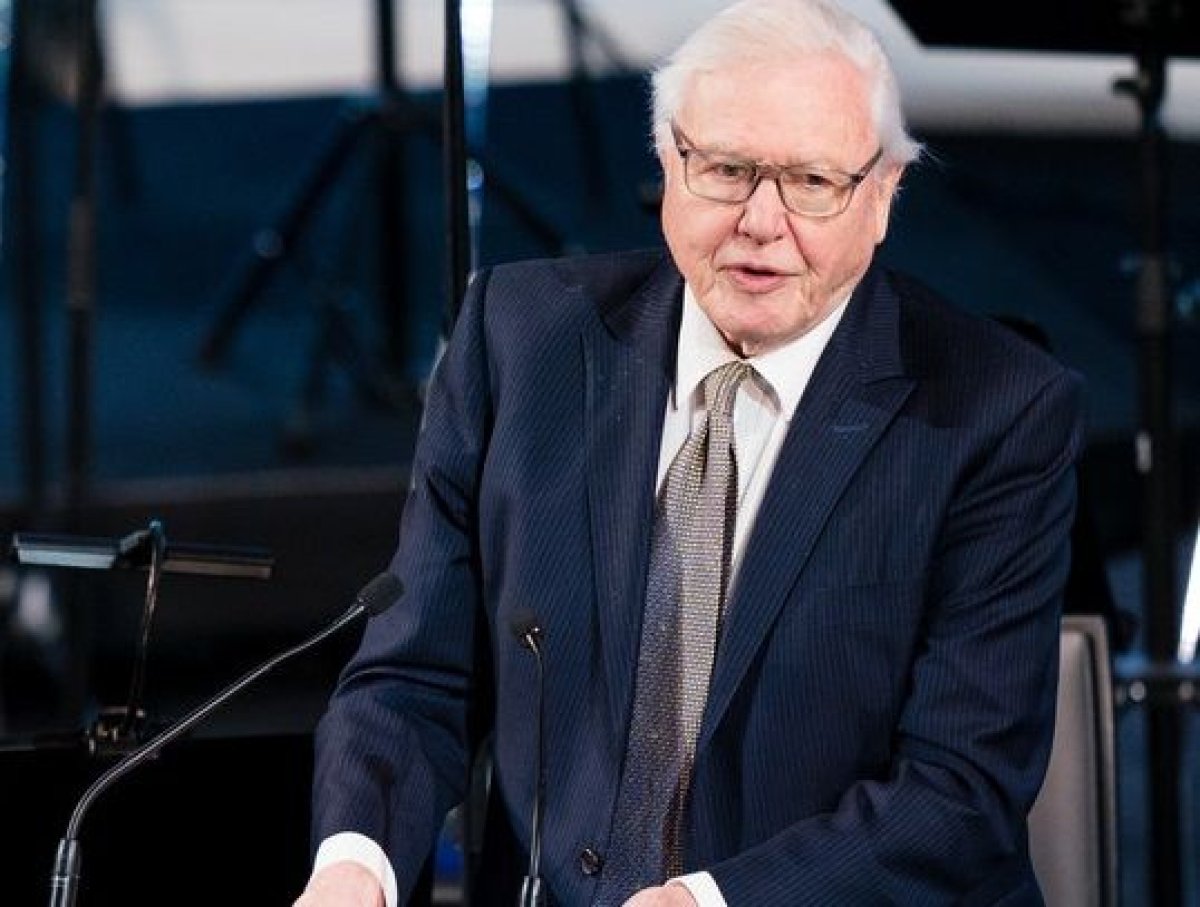David Attenborough has told the world's political and business leaders that mankind must work together to protect the planet, telling World Economic Forum (WEF) delegates that "the Garden of Eden is no more" and that mankind must "move beyond guilt or blame" to come up with "practical solutions."
During his speech Monday in Davos, Switzerland, the 92-year-old broadcaster and naturalist told delegates that mankind has had such a huge impact on the planet over the past century it has changed the geological makeup of Earth. "I am quite literally from another age," he said. "I was born during the Holocene—the name given to the 12,000-year period of climatic stability that allowed humans to settle, farm, and create civilizations.
Related: Ancient curse of Akkad—the world's first empire collapsed because of climate change
"Those conditions fostered our unique minds, giving rise to international trade in ideas as well as goods, making us the globally connected species we are today. Much of what will be discussed here is the consequence of that stability. Global businesses, international cooperation and the striving for higher ideals—these are all possible because for millennia, on a global scale, nature has largely been predictable and stable.
"Now, in the space of one human lifetime—indeed in the space of my lifetime—all that has changed. The Holocene has ended. The Garden of Eden is no more."
Attenborough said we are now living in the "Age of the Humans"—the Anthropocene. This is a new geological age proposed by scientists. It denotes that human activity has become the dominant influence over the planet. This would include greenhouse gas emissions from industry and nuclear fallout from the testing of atomic bombs.
Attenborough told attendees that there is huge potential for change over the coming years and that their influence will contribute to that. "We need to move beyond guilt or blame and get on with the practical tasks at hand. We did not get to this point deliberately, and it has happened astonishingly quickly. If people can truly understand what is at stake, I believe they will give permission to business and governments to get on with the practical solutions."
The WEF is a nonprofit organization founded in 1971 to provide a platform for discussing how to shape global agendas in the public interest. It claims to hold "moral and intellectual integrity" at its heart and says that its activities are based on the idea that organizations are accountable to society.
In his speech, Attenborough said: "And as a species, we are expert problem-solvers. But we haven't yet applied ourselves to this problem with the focus it requires. We can create a world with clean air and water, unlimited energy and fish stocks that will sustain us well into the future. But to do that we need a plan.… What we do in the next few years will profoundly affect the next few thousand years."
After his speech, Attenborough told journalists that economic growth is coming to an end. "The enormity of the problem has only just dawned on quite a lot of people," The Guardian quotes him as saying. "Unless we sort ourselves out in the next decade or so, we are dooming our children and our grandchildren to an appalling future."
Attenborough was attending Davos to receive the Crystal Award, which honors individuals who have helped to improve the world. He will also appear at the conference Tuesday with Prince William, where they will discuss environmental issues.
Panelists at the WEF include chimpanzee expert Jane Goodall, Nobel Peace Prize winners Denis Mukwege and Kailash Satyarthi, and Marco Lambertini, the director-general of WWF International.

Uncommon Knowledge
Newsweek is committed to challenging conventional wisdom and finding connections in the search for common ground.
Newsweek is committed to challenging conventional wisdom and finding connections in the search for common ground.
About the writer
Hannah Osborne is Nesweek's Science Editor, based in London, UK. Hannah joined Newsweek in 2017 from IBTimes UK. She is ... Read more
To read how Newsweek uses AI as a newsroom tool, Click here.








